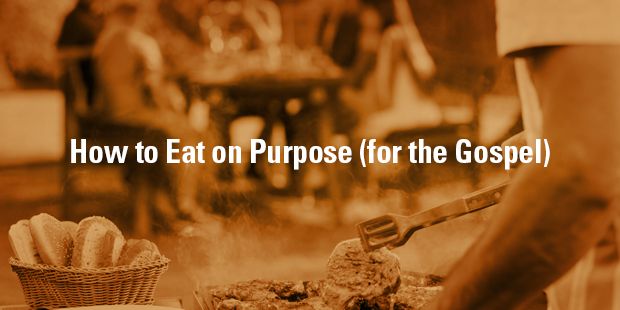
Joining God in Your Neighborhood: Stop, Look, and Listen
Just for fun, ask this question to a group of church leaders: “Is an attractional model of ministry or incarnational emphasis more effective?” Then sit back, as a vigorous discussion is sure to follow.
Attractional ministry implies that the church’s basic strategy for reaching the lost revolves around getting “seekers” or the “unchurched” into the church building. Once inside, the opportunity to present the gospel defines the primary opportunity for evangelism. This is often known as an “invest and invite” approach.
In contrast, the incarnational emphasis of a missional mindset focuses on living and sharing the gospel “where life happens.” The emphasis is placed on the church “disassembling” itself for the primary work of evangelism in the nooks and crannies of everyday life.
In the attractional mode, big church buildings are important, and the church gathered is the consummation of evangelism. In the incarnational mode, fluid and flexible communities of faith are important; the church scattered is the consummation of evangelism. A common rally-cry against the attractional model is that the church should be measured by its sending capacity, not its seating capacity.
The missional reorientation described above represents an important shift in focus from methodology to identity. Sending is not something you do, but being sent is something you are.
SOLUTION #1: Stop, look, and listen
THE QUICK SUMMARY – Gospel Fluency, by Jeff Vanderstelt
Even if they want to, many Christians find it hard to talk to others about Jesus. Is it possible this difficulty is because we’re trying to speak a language we haven’t actually spent time practicing?
To become fluent in a new language, you must immerse yourself in it until you actually start to think about life through it. Becoming fluent in the gospel happens the same way—after believing it, we have to intentionally rehearse it (to ourselves and to others) and immerse ourselves in its truths. Only then will we start to see how everything in our lives, from the mundane to the magnificent, is transformed by the hope of the gospel.
A SIMPLE SOLUTION
For many people, learning a second language occurred in high school or college, most likely in a classroom setting. You probably had a textbook and some sort of audiovisual support.
Maybe you learned a second language from an audio course of some kind, or an online course.
In each of the scenarios above, you probably were merely translating an unfamiliar language into a familiar one.
However, it’s one thing to know the basics of a language and quite another to become fluent in that language.
Fluency requires more than just translating from the unfamiliar to the familiar; it requires interpreting all of life through that new language.
When you begin to think, feel, and speak in that language, you are moving toward fluency. That language becomes the filter through which you perceive the world – and help others perceive your world and theirs.
It’s the same with gospel fluency.
Gospel fluency begins in you, gets worked out within community, and is expressed to a world that needs to hear about Jesus.
We have to become gospel-fluent people.
Such fluency is what God wants his people to experience with the gospel. He wants them to be able to translate the world around them and the world inside them through the lens of the gospel – the truths of God revealed in the person and work of Jesus. Gospel-fluent people think, feel, and perceive everything in light of what has been accomplished in the person and work of Jesus Christ.
They see the world differently. They think differently. They feel differently.
We are Jesus’s people, who speak the truths of Jesus into the everyday stuff of life.
Speak the truths of Jesus for rightly ordering our budgets. Speak the truths of Jesus for finding a spouse. Speak the truths of Jesus for how we respond to our employers or employees. Speak the truths of Jesus for how we parent our children. Speak the truths of Jesus into everything.
This is gospel fluency.
Language fluency requires immersion into a community of people who speak the language constantly. Gospel fluency requires immersion into a community of people so saturated with the gospel of Jesus Christ that they just can’t stop speaking the truths of Jesus wherever they go and in whatever situations they find themselves.
Jeff Vanderstelt, Gospel Fluency
A NEXT STEP
How can you become gospel fluent?
Just like the example of learning a second language recounted above, the best way to become gospel fluent is through immersion in a gospel-speaking culture.
And, again like the example, you don’t become fluent through classes or passively listening to another language.
You become fluent through immersion in a gospel-speaking place and through ongoing practice.
Consider the following common actions and the related gospel fluency questions:
Listening to people
- How is this in line with the truths of the gospel?
- What about Jesus and His work might be good news to this person today?
Experiencing culture
- What themes of the gospel do you see?
- What themes represent a false gospel?
Personal transformation
- How are you experiencing personal changes as the truths of the gospel are integrated into your thoughts, beliefs, emotions, and actions?
- How is hearing and speaking the truths of Jesus Christ into everything helping you grow up into Christ in every way?
Create a way to confront these questions each day for the next seven days. Record your observations around the three areas above each evening as you prepare for bed. Assess your growth in gospel fluency and take steps to continue growth.
This is part of a weekly series posting excerpts from one of the most innovative content sources in the church world: SUMS Remix book excerpts for church leaders.
SUMS Remix takes a practical problem in the church and looks at it with three solutions; each solution is taken from a different book. Additionally, a practical action step is included with each solution.
As a church leader you get to scan relevant books based on practical tools and solutions to real ministry problems, not just by the cover of the book. Each post will have the edition number which shows the year and what number it is in the overall sequence. (SUMS Remix provides 26 issues per year, delivered every other week to your inbox).
>> Subscribe to SUMS Remix <<

Tags: Discipleship, Gospel Fluency, Jeff Vanderstelt, SUMS Remix















